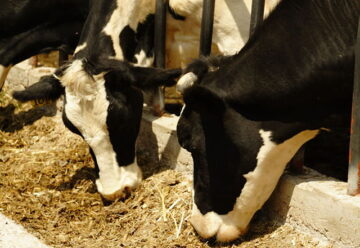Bob Holmes in The Wire:
 In the urgent quest for a more sustainable global food system, livestock are a mixed blessing. On the one hand, by converting fibrous plants that people can’t eat into protein-rich meat and milk, grazing animals like cows and sheep are an important source of human food. And for many of the world’s poorest, raising a cow or two — or a few sheep or goats — can be a key source of wealth.
In the urgent quest for a more sustainable global food system, livestock are a mixed blessing. On the one hand, by converting fibrous plants that people can’t eat into protein-rich meat and milk, grazing animals like cows and sheep are an important source of human food. And for many of the world’s poorest, raising a cow or two — or a few sheep or goats — can be a key source of wealth.
But those benefits come with an immense environmental cost. A study in 2013 showed that globally, livestock account for about 14.5% of greenhouse gas emissions, more than all the world’s cars and trucks combined. And about 40% of livestock’s global warming potential comes in the form of methane, a potent greenhouse gas formed as they digest their fibrous diet.
That dilemma is driving an intense research effort to reduce methane emissions from grazers.
More here.
